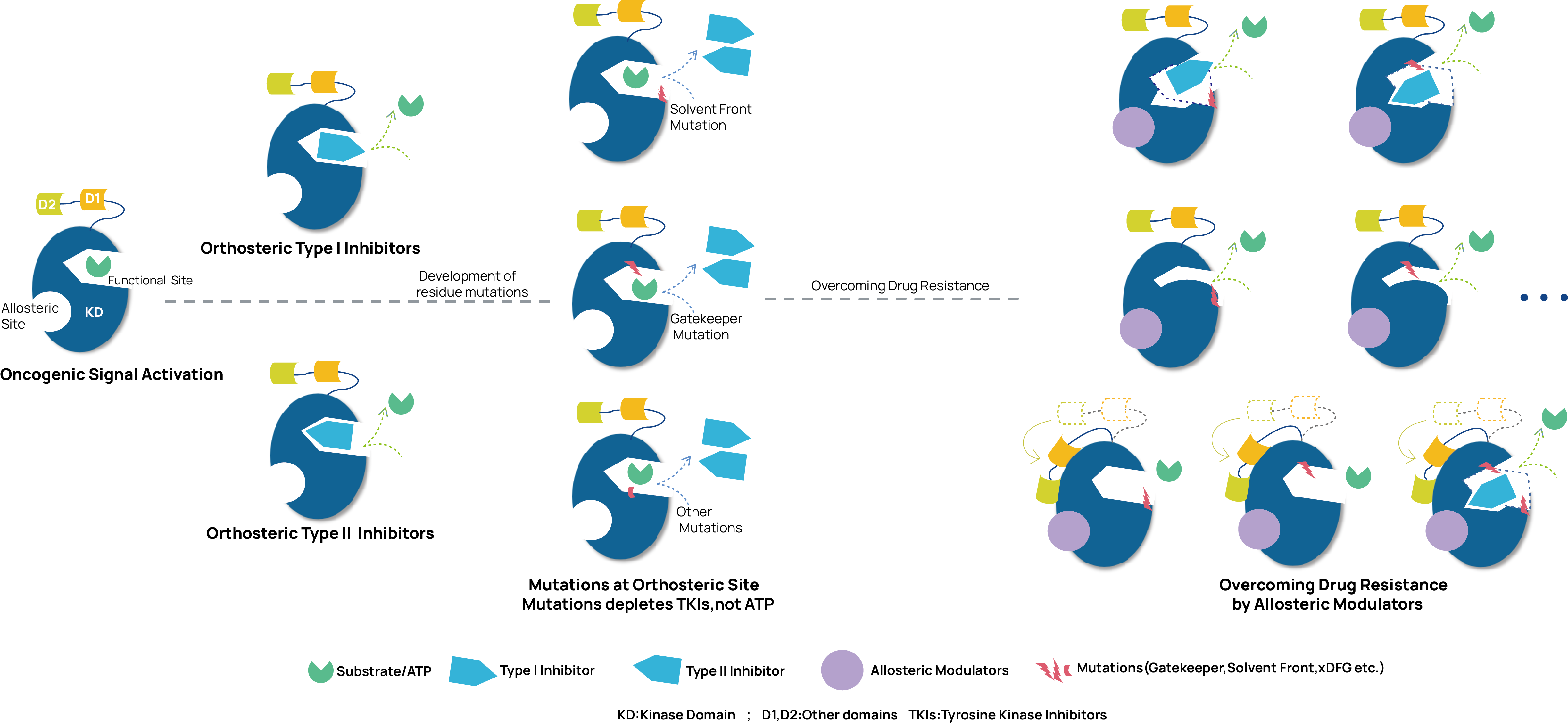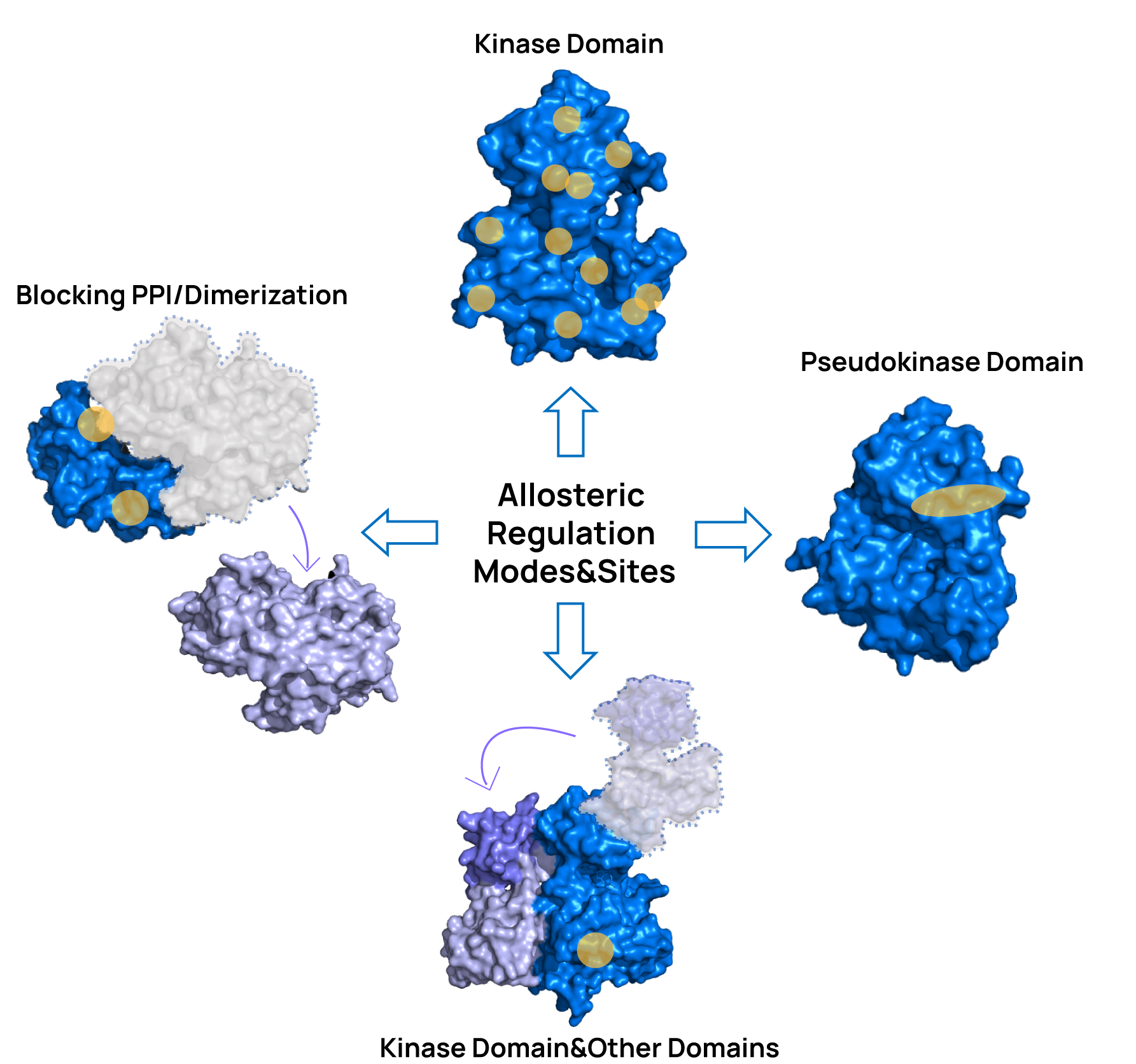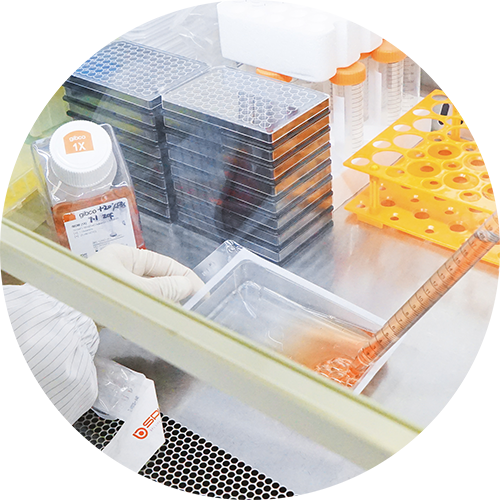R&D Strategy
Most cancers that exhibit an initial clinical response to kinase inhibitors eventually develop resistance and continue on their progression. Drug resistance occurs primarily through residue mutations inducing the conformation switches of the binding pockets which then affects the binding of the drug to its target. Our strategy is predicated on designing curative small-molecule drugs that bind to allosteric sites of the receptor, resulting in the inhibition of protein kinase activity. Besides, we also investigate conventional inhibitors with better binding affinity and improved selectivity towards the catalytic sites to overcome drug resistance.


We intend to leverage our core scientific expertise and state-of-the-art technologies to design and develop the next generation of drugs targeting orthosteric or allosteric sites. We make full use of the advantages of targeted allosteric and orthosteric ligands. With the benefit of novel mechanisms such as dual regulation or multi-regulation etc., drugs with better bioactivities and lower side effects are hereby developed as a new generation of cancer treatments.
Medical Information
-
TargetRx's world-class R&D platform2021-10-14
Drugs Targeting at Allosteric & Orthosteric SitesWe make full use of the advantages of allosteric and orthosteric
-
[In-depth Report] BCR-ABL1 allosteric inhibitor symbolizes a new start oftargeted therapy2021-10-15
Allosteric regulation is ubiquitous in the life processes of cells, including non-covalent interactions between mole






 Tel: +86-0755-86934300
Tel: +86-0755-86934300 3rd Floor, Building A1, Kexing Science Park, No. 15 Keyuan Rd., Nanshan District, Shenzhen, China
3rd Floor, Building A1, Kexing Science Park, No. 15 Keyuan Rd., Nanshan District, Shenzhen, China E-mail:
E-mail: 